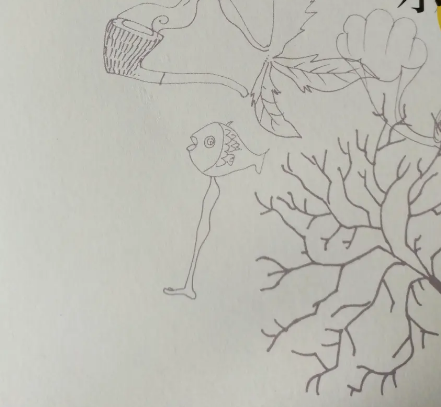No one can explain Calvino’s thoughts clearly. He threw himself into a whirlpool of thoughts, and after painfully searching for an outlet, he found peace in it. This tranquility is probably a bystander’s perspective, an intermediary position of “the world observes the world”.
Palomar is the tenth Calvino work I have read. Different from previous works, the author’s worries can be clearly felt in this book’s philosophy of predicting his death: feelings about human insignificance, anxiety about social barriers, fear of unknown things, and memories of old times.
First of all, about the hero Palomar. If I were a university professor with a voice, I would probably label this book as “Palomar syndrome”. They have an almost neurotic logical thinking about everyday things, with a little pessimism, trying to find out the essence of all things, but falling into a tangled network. In interpersonal relationships, they think they are not gregarious, complex but not good at expression, and finally learn to be silent. This is my understanding of Calvino, a kind of bystander wandering in the crowd.
Second, about the universe. This is one of the most commonly used images of Karzai. On the one hand, the universe from the perspective of the concept of nature represents “nihility”, which is the deepest level of Calvino’s pursuit, and is his sustenance after his logical thinking falls into unknowability. On the other hand, the universe from the perspective of social view is probably similar to what Marx said, “things have universal connections”, that is, all things, including human society, are a large and interconnected collection. Among them, Calvino saw the insignificance of human beings, saw the meaningless of self, understood the collective nature of life, and finally gained the calm mood of a bystander.
Is this really Calvino’s idea? I don’t know? Roland Barthes said that “the author is dead”, which is a point of view of reception aesthetics, and I don’t quite agree with it. But Calvino said, “I still think that a writer’s works are only valuable, so I don’t provide biographical data. I will tell you what you want to know, but I will never tell you the truth.”. So the work becomes a living and independent work, and the rest is the polysemy of interpretation and infinite imagination space. This is probably what I admire most about Calvino.
Excerpt
[About natural knowledge] Knowledge imparted directly by sound is impossible to regain and pass on once lost. Because the knowledge about birds singing and flying, which people acquired directly from their keen ears and eyes in childhood, cannot be given by any book
[About self and the world] Maybe it is because the world around him is so uncoordinated. He often hopes to find some harmonious patterns and some constant in this uncoordinated world. Perhaps he felt that his mind was so disorderly, as if all kinds of thoughts in his mind were irrelevant, and it was increasingly difficult to find a mode that could keep his mind in harmony.
[About truth and interpretation] If we treat them in isolation, they are a stone, a figure, a symbol or a word. We can try our best to explain and describe them as they are, but we should do nothing else.
Refusing to understand what these stones have not told us is also the best way to respect the secrets of stones; Trying to guess its secret is arrogance, a betrayal of the true but now lost meaning.
[About silence] Now is an era when people talk too much. It is not important to speak correctly. It is important to clarify the causes and consequences, so that what you say is worth a hundred times…. If you choose to be silent, it should be said that mastering the art of silence is much more difficult than mastering the art of speech.
[About the elderly and young people]
[About observing things as an intermediary]
(The above two parts are a chapter as a whole, and I cannot take them out of context)
[About death] The consolation brought by death should be: after removing the worry, that is, our existence, the only important thing is that everything is displayed in the sun and happens in a indifferent and peaceful atmosphere.
[About life] A person’s life is a collection of events, the last of which may change the meaning of the whole collection.
[End] At this very moment, he died.
